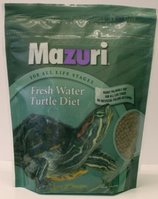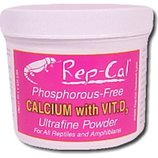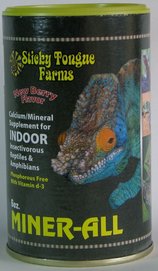The Best Diet for Your Turtle
Find out the ideal diet for your aquatic turtle at each stage of its life.
This is general advice, if you have a more exotic species keep in mind these rules may not apply or they may have special dietary needs. Consult a veterinarian or authoritative guide if you aren't sure! For the more common aquatic turtles, like Red-eared Sliders, this should be helpful to you.
Quick Reference
These healthy fresh foods should form the basis for your Turtle's diet. The quantity of each should be adjusted with your turtle's age though. See below for more details.
Protein
- Canned Tuna
- Small Crickets
- Meal Worms
- Small feeder fish
- Dried Shrimp (see treats)
Leafy Greens
- Kale
- Dandelion Greens
- Cabbage
- Mustard Greens
Vegetables
- Softened Carrots (steam or boil)
- Cooked Sweet Potato
- Pumpkin
- Squash
- Green Beans
Fruit
- Apples (might need steaming to soften)
- Pears
- Berries (strawberry, blueberries, etc)
- Melons
Fruit should always be cut into small pieces.
Water Plants
- Water Hyacinth
- Water Lettuce
These should be available at your local nursery. In addition to providing food they also have the nice ability to pull some of the waste out of the water which should keep down the amount of algae growing.
Be Wary of:
- Chard - can block absorption of calcium
- Spinach - can block absorption of calcium
- Rhubarb - can block absorption of calcium
- Cabbage - can cause kidney disease and goiter
- Bok Choy - can cause kidney disease and goiter
- Broccoli - can cause kidney disease and goiter
- Collard Greens - can cause digestive complications
Small quantities of those vegetables are fine, but use them sparingly and make sure you supplement with calcium.
How to Feed
If you want to keep the cage cleaning minimal (always smart) a the recommended turtle feeding technique is to move your turtle to a smaller water filled container. This makes it easy to clean since you can just dump the water after the turtle has eaten. To minimize temperature shock it would be a good idea to pull the water from the habitat.
But, the easiest way to feed an aquatic turtle is to just drop the food into the water in their habitat. However, that usually means you will need to clean the food waste from the tank more often to prevent algae and mold growth. A good filter will help with that though, so make sure you are confident in your filter before feeding in the tank.
Juvenile Diet
Younger turtles are growing quickly and will need plenty of protein to make their shells grow strong. Most of their diet should be protein, somewhere in the 70%-80% range at this age.
Just like children, young turtles may not like veggies right away but keep offering greens and other vegetables. Giving your turtle the occasional piece of fruit is a good idea (see treats). Keep the diet varied, but make sure they get plenty of protein at this age. If they don't like veggies right away, that's ok, focus on protein.
Adult Diet
Once a turtle hits the age of about 18 months old you should start phasing down the amount of protein you're feeding them. At this point a healthy diet should be 50-60% leafy greens and some fruit.
Adult turtles still need protein, however by this age their shell is mostly grown and so too much protein can actually be detrimental. Too little leafy greens and too much protein can lead to pyramidding and eventually debilitating deformity. A healthy mix is 50-70% leafy greens and the rest a protein source.
Food Pellets
I'm of the mind that a turtle's diet ought to match as closely as possible to what they would eat in the wild. However, it's tricky to maintain a proper balance of vitamins and can be a pain to ensure you always have enough veggies for your turtle. That's why commercial pellets were invented. They greatly simplify the feeding process. You can mix in pellets, but I would not recommend making pellets more than 50% of your turtle's diet.
Buyer Beware
Not all pellets are created equal. Some are well balanced nutritionally and others (most) are lacking.
Our Red-eared Slider was showing some early signs of pyramidding so we took him in to see the vet. We asked the vet about the pellets we were using as his primary food. These major brand turtle food pellets exclaimed how complete the nutrition was all over label. The vet said that these pellets were definitely the cause of the pyramidding. She even went on to say that none of the pellets you can buy in most pet stores really offer enough nutrients to be a primary food source. Despite the containers saying explicitly that it is designed to be used as a primary food, it is not!
Our Recommendation
Varied Is Best
Again, you can't rely on pellets alone for proper nutrition. Follow the diet advice I gave for the stages above and mix in pellets a few times a week to ensure a good varied diet.
Treats
Even turtles need a treat sometimes. Here's a few good healthy treats to give your aquatic buddy:
Treats
- Dried Shrimp
- Apples slices (might need steaming to soften)
- Pear slices
- Berries (strawberry, blueberries, etc)
- Melons
When giving your turtle new foods make sure to supervise it while it eats! You don't want it to choke.
Keep in mind that these aren't everyday foods. Turtles can get fat! So only give them occasionally.
Supplements
Its difficult to ensure your turtle gets the full range of vitamins and micronutrients it needs, so some supplementing can really help. We recommend the following supplements:


